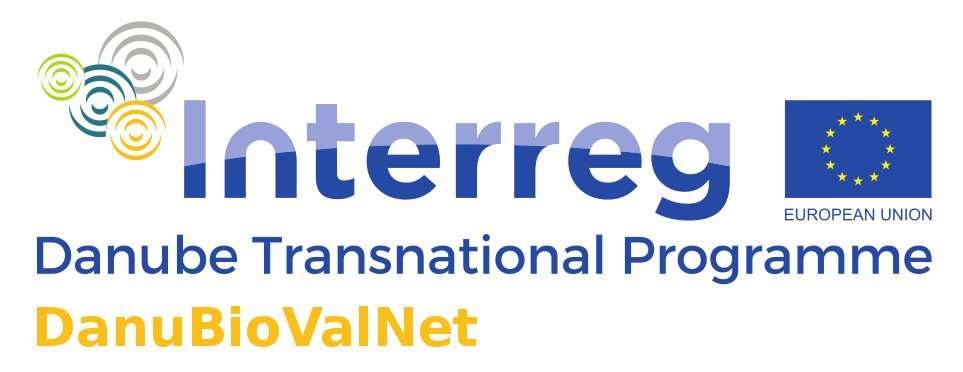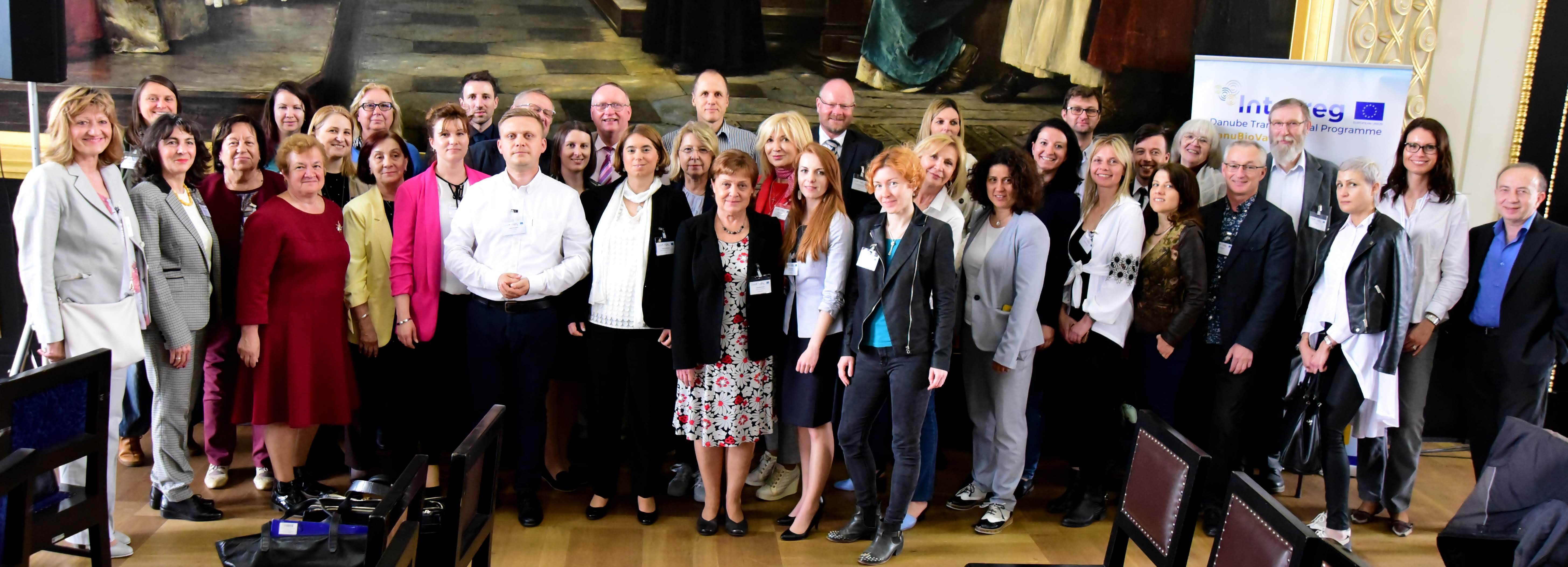DanuBioValNet - The Danube region countries have taken up the bio-economic challenge
11-06-2019
Press Release

Prague, 29. 5. 2019 - The countries of the Danube Region are rich in biomass resources, but the bioeconomic potential of these resources has not yet been exploited in a targeted way. One reason is the lack of coordination between different sectors. To address this issue, partners from the DanuBioValNet project came to Prague on 28 and 29 May 2019 to share their experience and present proposals for strengthening inter-sectoral coordination and boosting the Danube Region’s bioeconomy – a step which will also have a positive impact on climate change.
The bioeconomy – also known as the bio-based economy – is the economic use of renewable resources to reduce consumption of non-renewable fossil resources. The bio-based economy holds huge potential for tackling the environmental threats to our planet, and it has been the key topic of the DanuBioValNet project. This project, launched 2½ years ago, has also focused on how regional cooperation can help the countries of the Danube Region to achieve higher levels of sustainability while also boosting their competitiveness. Partners from nine Danube Region countries presented their experience and proposals at a conference entitled “Sustainable Transformation of the Danube Region and the Future of the Bioeconomy-based Competitiveness”, which was also attended by representatives of key stakeholders from the Czech Republic.
The second day of the conference (29 May) took place in Prague. The conference patrons included the Office of the Government of the Czech Republic and two key ministries that are closely involved in the issues addressed by the project: the Ministry of the Environment and the Ministry of Industry and Trade. The event attracted a large number of delegates from government institutions on both the national and regional/city levels, as well as representatives of clusters, companies and universities. Key topics discussed at the conference included the importance of functional interaction on the international and regional levels and the strengthening of inter-sectoral links. One way to create new links among different sectors exploiting renewable resources is to develop infrastructure involving participants along these sectors’ entire value chains – and cluster organizations are an ideal vector for this type of collaborative infrastructure. A cluster forms a managed, coordinated, sector-specific ecosystem enabling a complete value chain to function with maximum effectiveness. Support for SMEs represents an integral part of cluster-based activities, so the National Cluster Association (NCA) has played an important role in the DanuBioValNet project. By highlighting the topics outlined above, the Prague conference emphasized the crucial future role that regions will play in creating better framework conditions to support innovation and the transformation to a bio-based economy.
Professor Ralf Kindervater is the CEO of Baden-Württemberg’s BIOPRO agency, the Lead Partner in the DanuBioValNet project. He explained what the project has achieved: “During the project implementation we have created links between existing clusters and a sector that is still relatively new within the Danube Region – the bio-based economy. We see these links as a viable way of bringing sustainable, environmentally responsible products to the market.”

The DanuBioValNet has demonstrated that emerging bio-based industries – specifically phytopharmaceuticals, eco-construction and bio-based packaging – possess strong potential and can bring major benefits for regional development. However, it is essential that policymakers and key institutions take a positive view of these emerging industries, as only they are able to create suitable conditions for ongoing sustainable growth. The project partners therefore intend to intensify their existing collaboration in the upcoming period, enabling them to make genuine progress towards achieving their goals.
Photogallery from the event is here: http://dtp.interreg-danube.eu/approved-projects/danubiovalnet/gallery
Author: National Cluster Association, Czech Republic
Project co-funded by European Union funds (ERDF, IPA), http://dtp.interreg-danube.eu/danubiovalnet
